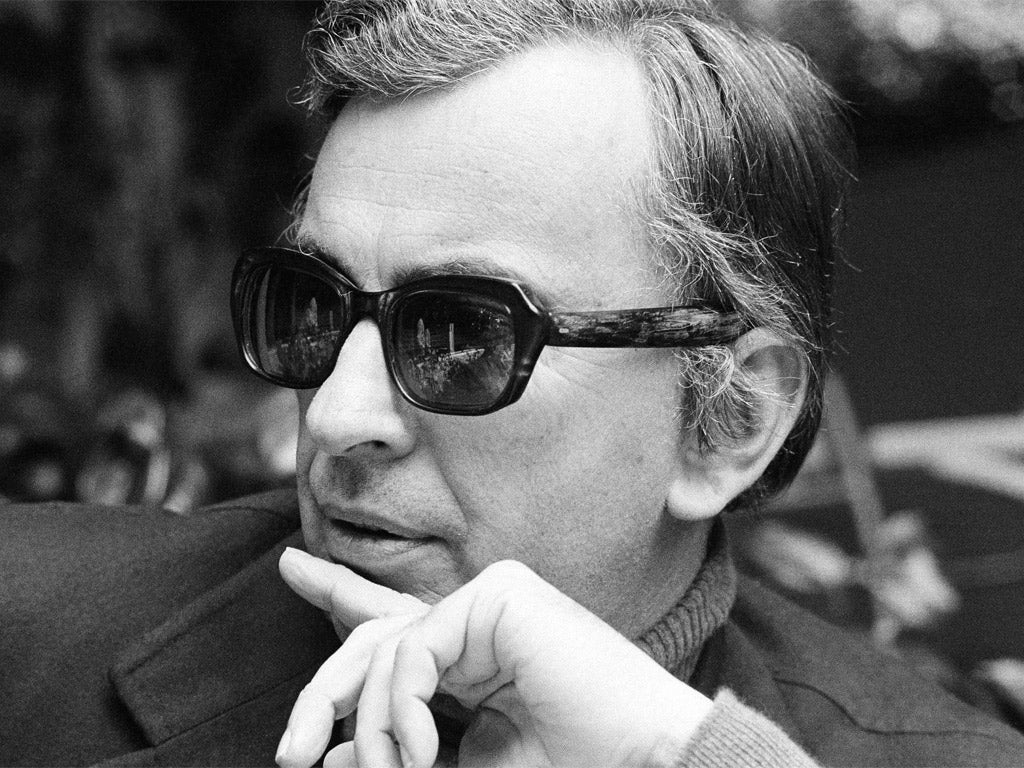Keeper of America's national conscience
Gore Vidal, the author and political commentator, has died aged 86. Rupert Cornwell pays tribute

Your support helps us to tell the story
From reproductive rights to climate change to Big Tech, The Independent is on the ground when the story is developing. Whether it's investigating the financials of Elon Musk's pro-Trump PAC or producing our latest documentary, 'The A Word', which shines a light on the American women fighting for reproductive rights, we know how important it is to parse out the facts from the messaging.
At such a critical moment in US history, we need reporters on the ground. Your donation allows us to keep sending journalists to speak to both sides of the story.
The Independent is trusted by Americans across the entire political spectrum. And unlike many other quality news outlets, we choose not to lock Americans out of our reporting and analysis with paywalls. We believe quality journalism should be available to everyone, paid for by those who can afford it.
Your support makes all the difference.Gore Vidal wrote like a dream, and talked like one too. He loved to amuse and even more to infuriate, and usually succeeded in doing both. His tongue was tart, his quotes irresistible, and his feuds legendary.
The 86-year old author, wit, essayist, film writer, political commentator and two-time unsuccessful candidate for Congress died on Tuesday evening at his home in Hollywood Hills from complications of pneumonia. Vidal had been living alone and had been ill for "quite a while," his nephew Burr Steers said.
Yesterday, tributes flooded in from the famous and less famous, from lions of the literary, stage and screen worlds, as well as ordinary fans who admired not just his literary and verbal elegance, but also his readiness to take the opposing point of view. "Style is knowing who you are, what you want to say and not giving a damn," said Courtney Love, borrowing a celebrated Vidal dictum.
But his impact had perhaps most perfectly been summed up by the American author and publisher Dave Eggers three years ago, at the 2009 National Book Awards ceremony. "He meant everything to me when I was learning how to write and learning how to read," Eggers said, praising Vidal's "intellect and activism, his ability and willingness to always speak up and hold his government accountable."
And hold it accountable he did. In the 1960s, Vidal was a ferocious critic of the Vietnam war; four decades later he was equally scathing about the Iraq war. His best writing – among them the novels Lincoln and Burr and his 1964 book Julian about the fourth century Roman emperor-apostate whose rejection of Christianity mirrored Vidal's own – was historical, and his waspish critiques of his country were imbued by a sense of history.
"We are the United States of Amnesia," he wrote in The Nation in 2004 as post-Saddam Iraq descended into chaos, "We learn nothing because we remember nothing." America, he wrote in the same essay, was a place where "the withered Bill of Rights, like a dead trumpet vine, clings to our pseudo-Roman columns."
Vidal was a tangle of contradictions. The grandson of a US Senator who counted Jackie Kennedy as a step-sister, he was a product of the establishment, but spent most of a lifetime criticising that establishment. An angry young man, he became an even angrier old man. He was a homosexual, and an atheist in a country oozing religiosity. By the end however, he had become not only a national institution but also, in his often vain and hyperbolic fashion, a keeper of the national conscience too.
His dismay at American society and culture could descend into lacerating snobbery: "Fifty per cent of people won't vote, and 50 per cent don't read newspapers," he once famously declared, "I hope it's the same 50 per cent." The contempt may explain why he lost his two political races, for a New York House seat in 1960 and for the Democratic nomination for the Senate in California in 1982. On the first occasion he told The New York Times his objective was to "subvert a society that bores and appals me." In US politics, genuine iconoclasts seldom go far.
Thereafter he largely decamped to Italy, keeping a house at Ravello on the Amalfi Coast – "the best place to be when the end of the world arrives," he loved to say. But the feuding remained a constant.
In the Sixties and Seventies his foes included the languidly eloquent Bill Buckley, founder of The National Review and in many respects Vidal's conservative opposite number, and the cantankerous Norman Mailer, who once floored Vidal in a fist fight. "Yet again, words fail Norman Mailer," was the riposte from Vidal, as he lay on the ground.
Later he fell in, and then out, with Christopher Hitchens, who shared with Vidal a gift for words written and spoken, a love of the limelight, and a fruity baritone voice.
In the 1990s Vidal named Hitchens as his official "successor, inheritor, dauphin or delfino." But after 9/11, when Hitchens supported the Iraq war and Vidal suggested that the Bush administration had foreknowledge of the terrorist attacks, the two split. In a Vanity Fair column, Hitchens lambasted his former kindred spirit as "Vidal loco."
And "loco" Gore Vidal indeed sometimes was. Love him or loathe him however, he was as impossible to ignore as Mark Twain or HL Mencken, earlier literary titans with whom he is often compared.
Join our commenting forum
Join thought-provoking conversations, follow other Independent readers and see their replies
0Comments